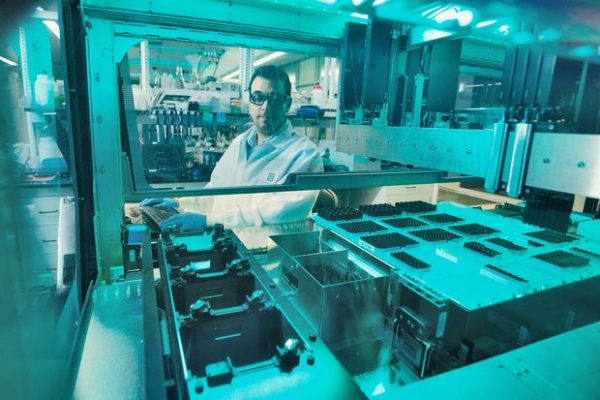Text size

For investors, there are a handful of ways to get comfortable with a gamble on mRNA.
The strongest endorsement of Moderna (ticker: MRNA) and Translate Bio (TBIO) may have come from Big Pharma. AstraZeneca (AZN) is among the largest shareholders of Moderna, with a 7.7% stake, and has three separate drug-development deals with the company. Merck (MRK) has another two. Translate has a drug-development deal with Sanofi Pasteur. Takeda Pharmaceutical (TAK) owns 13.9% of Translate; GlaxoSmithKline (GSK) has another 6.3%.
One way to make hedged bets on mRNA is through companies such as AstraZeneca and Merck, which are set to profit if Moderna’s technology begins to work out.
Two private German companies are also major players. CureVac, based in Tübingen, was focused on mRNA-powered prophylactic vaccines until its new CEO, Dan Menichella, took over last year and reoriented the company’s efforts toward oncology and rare diseases. Mainz-based BioNTech, which develops mRNA-powered personalized cancer vaccines, raised $325 million in July, with an enormous valuation that makes it the European version of Moderna. Neither is expected to go public in the near term, but both could be promising opportunities if they do.
Another public company, Arcturus Therapeutics Holdings (ARCT), is also pursuing mRNA therapies. It is smaller than Translate, with operating expenses of $10.7 million for the most recent fiscal quarter, compared with Translate’s $29.4 million.
Moderna’s broad approach to drug development could give investors confidence; the company doesn’t need to bat a thousand to succeed. And the vaccine business may be argument enough.
Newsletter Sign-up
“There are only a couple of technologies that can serve vaccine markets,” says Christian Koch, a member of the investment management team at BB Biotech , a Swiss biotech investment company that holds Moderna. “One is the classical approach….That has been entrenched in Big Pharma, due to the scale and breadth of manufacturing and distribution.”
With the advantages offered by mRNA, Moderna could handle the manufacturing, Koch says. Distribution remains an issue, but he says that the vaccines remain an investment argument for his firm.
For other investors, the wisest bet may to let the Big Pharma business-development departments do the research for you, and be ready to wait a good long while for profitability. That points to Moderna, and perhaps to Translate Bio—and to a lot of patience.
Write to Josh Nathan-Kazis at josh.nathan-kazis@barrons.com






